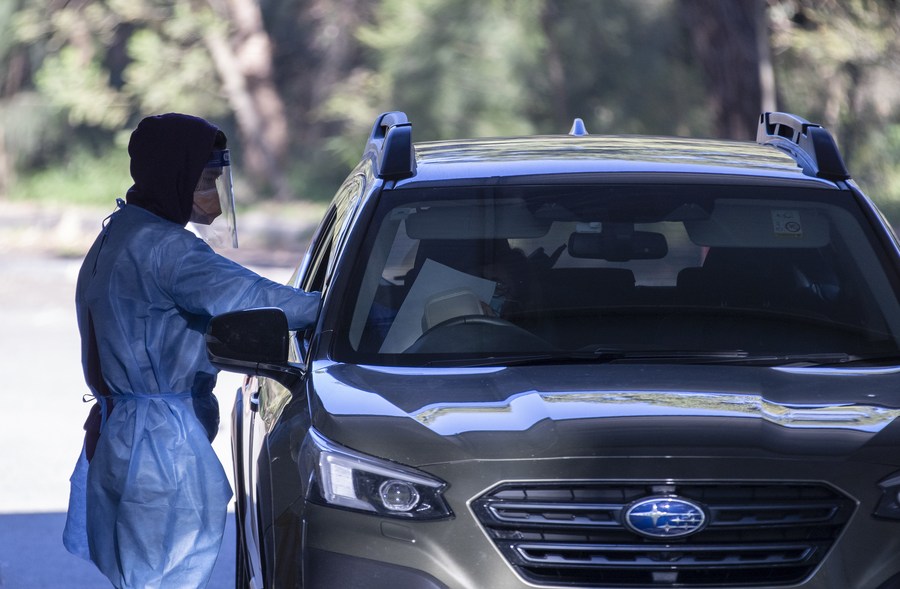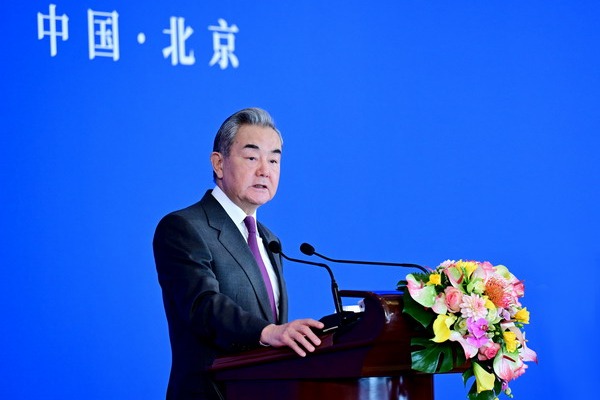Australia's COVID woes continue as slow vaccination and faulty decision-making blamed


Lack of proper leadership, poor planning, slow vaccine supply and rollout, and political infighting have all contributed to the mess that Australia finds itself in right now as the nation struggles to contain the Delta strain of the COVID-19 virus.
Nowhere is the pain more apparent than in New South Wales, Australia's biggest state and economically the most important.
Even though much of Sydney, NSW's capital city, is in its 8th week of lockdown along with some other locations in the state, COVID case numbers continue to rise. On Aug 10, NSW recorded 356 locally acquired cases, while other states Queensland and Victoria reported much lower numbers.
As the Delta strain spreads in NSW and moves into Queensland and Victoria, questions are being asked as to where the vaccines have gone and why is it taking so long to get people inoculated.
While the politicians cite advice from health experts in relation to decisions on border closures and lockdowns, evidence is emerging that much of the decision-making is based on what political polls are saying.
In Queensland, for example, The Australian newspaper claimed that the government has hired a polling firm to gauge the public's responses to border closures and lock downs, rather than go purely by medical advice.
The government of South Australia has also imposed a second quarantine period on 16 Olympians from the state currently quarantining in hotels in Sydney. The state government has ruled that the athletes must spend another 14 days in quarantine on arrival in Adelaide, the capital city of SA.
South Australia is the only state to do this. There are 56 team members returning to South Australia with 16 currently quarantined in Sydney, Xinhua cited information from the Australian Olympic Committee.
But more than anything else, it has been the slow vaccination rollout that has caused the biggest problem for the government and Australians in general.
Media reports have focused on the prospect of drive-through vaccination clinics, incentives to vaccinate, and asking dentists, midwives or physiotherapists to help inoculate the population.
The latest plan, announced by Prime Minister Scott Morrison recently, was light on detail but heavy on spin and jargon.
Among the 38 countries that make up the Organization for Economic Cooperation and Development bloc, Australia has the lowest share of the population fully vaccinated, with only around 7 percent of Australians having received two vaccine doses so far.
On Aug 9, it was announced that Australia had secured 25 million doses of Moderna COVID jabs. This is in addition to 125 million doses of Pfizer and 53 million doses of AstraZeneca vaccines that have already been secured.
"While our rollout has faced many challenges, it is clear that supply has been one of the most significant constraints," said Paul Griffin, director of infectious diseases division at healthcare provider Mater Health Services and associate professor of medicine at the University of Queensland.
"To have an additional vaccine as an option reduces our reliance on existing supply chains that have not been able to meet demand thus far," Griffin said, referring to the need to secure new supply sources besides the AstraZeneca vaccine that is domestically manufactured in Australia.
Moves by business groups to have vaccinations mandatory in the workplace have been rejected by the federal government. While mandatory vaccinations are not illegal in Australia it would be political suicide as the anti-vaccination lobby has become quite vocal during the pandemic.
Christine Jenkins, professor of respiratory medicine at the University of New South Wales and head of the Respiratory Group at the Sydney-based George Institute for Global Health, said vaccinations "will make a dramatic difference".
However, she added that vaccinations will not be an instant remedy.
She noted that it "takes approximately three weeks for a person's antibody levels to rise to a level that reduces the risk of symptomatic infection with SARS-CoV-2 by about 50 percent after the first dose, and a further two to three weeks after the second dose to approach the maximum benefit from two doses".
"Having said this, the effects of vaccination commence early so even after one dose. There are benefits in reducing transmission to close contacts and households," Jenkins said.
Asked at a press conference on Aug 10 if it was time to impose tougher restrictions in the main affected areas of the state, NSW Premier Gladys Berejiklian said: "What we have to accept is the basic fact that Delta is very different to other strains we have had. Policy positions that may have worked in the past aren't going to have effect with Delta. It is something we need to accept."
"Accept this is a different variant and we need to approach it differently," she said, adding that vaccinations hold the key to reducing the case numbers.
The World Health Organization said there had been 37,372 confirmed cases of COVID-19 in Australia with 944 deaths by Aug 12. Around 300 cases per day on average were recorded in recent couple of weeks. As of Aug 7, more than 13.72 million vaccine doses had been administered.

































